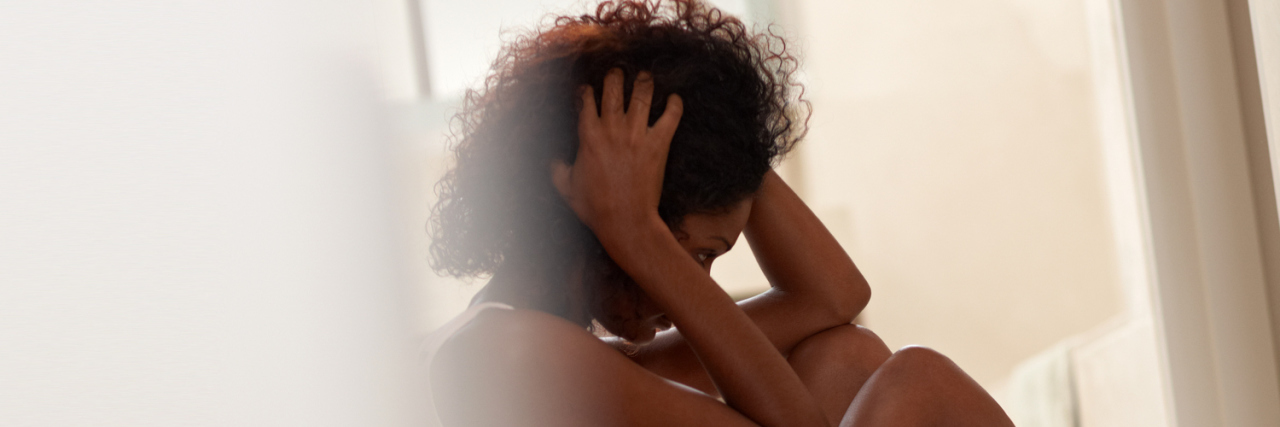Often I experience more than 15 days per month with a migraine. The pain is excruciating and nothing helps much. I prefer to be alone in dark quiet room; sometimes the breathing of others in the room feels like an assault. Unfortunately, it is hard for others to understand when I say my head hurts too much for me to engage in activities.
People often inquire about my medical treatment and prescriptions. They don’t understand why I find it too much to go to another neurologist since my last one relocated out of the city. Truly, my family questioned why it took six months to find a new primary care provider (PCP). My PCP also relocated. Both of my healthcare providers were minority females. They have the experience and understanding to treat a black female with migraines. Moreover, I didn’t have to inform them about the stigma associated with black females with invisible disability or illnesses.
My migraines have caused coworkers and managers to look at me with doubting. Often, I have soldiered through pain to point of experiencing seizures on the job. More than once I have left workplace in an ambulance.
The cost of losing jobs, looking past people doubting me and medical bills are nothing compared to the impact on my esteem and hope. After losing yet another job as the ambulance carted me to local ER, I cannot go anywhere without receiving people’s unsolicited advice, retelling the experience of others, or people trying to be Iyanla and fix my life.
Beloved, my life ain’t broke. My migraines are medically documented disability. But the ignorant trope of the strong black woman keeps folks expecting me to rise and smile as I cook, clean, work, and volunteer. The stereotype of black folks being lazy keeps me from immediately connecting with the next doctor or neurologist in my network. I need the compassion that usually comes from medical providers that are minorities and female.
My attempt to identify a minority female PCP ended in epic disaster. After being told there were not any black female physicians in my network I inquired about Hispanic or Asian females. I was told the best and closest in network to a minority female was a white female fluent in Spanish. At this point my husband experienced and understood my dilemma.
Later in the exam room, speaking to the available nurse practitioner of the day, I was told to continue my medication but decrease my pain medication. I asked about a shot to ease the agony of migraine that was on day four and she told me she reserved that for extremely sick patients. It seemed like she couldn’t understand or identify my pain because she focused on my blackness.
Black women’s pain is invisible most of the time. We are expected to carry on and recover as we work. The intensity of my pain rarely supersedes the immediacy of my black femaleness. These experiences exacerbate migraines and all other illnesses.
There is a cruel irony that in Black History Month of this millennium there is much work to do to eradicate the systemic racism in healthcare.
For me, the effects of being a black female with a migraine are akin to one forcing a migraine patient into a heavy metal concert with strobe lights. The pain of racism is as real as the pain of migraines. Unfortunately, the viciousness of racism often gives healthy people a headache.
The ordinary doubts and constant stream of unsolicited advice from eating almonds to doing hot yoga to prevent migraines is aggravating to anyone. However, throw in the unacknowledged biases and systemic racism and the lack of compassion is debilitating. The trope of the strong black woman is embedded in psyche of society.
When you encounter a black female with migraine, remember her pain is real, her struggle is disruptive to her life goals, and she is wary of new providers and weary from unsolicited advice, doubts embedded in racial stereotypes, and she needs healthcare providers that recognize that she is more than black and female. Being colorblind doesn’t help one to understand the needs and reality of black females with a migraine. Neither does being fluent in Spanish when their patient doesn’t speak Spanish.
We want to hear your story. Become a Mighty contributor here.
Getty image by GlobalStock

